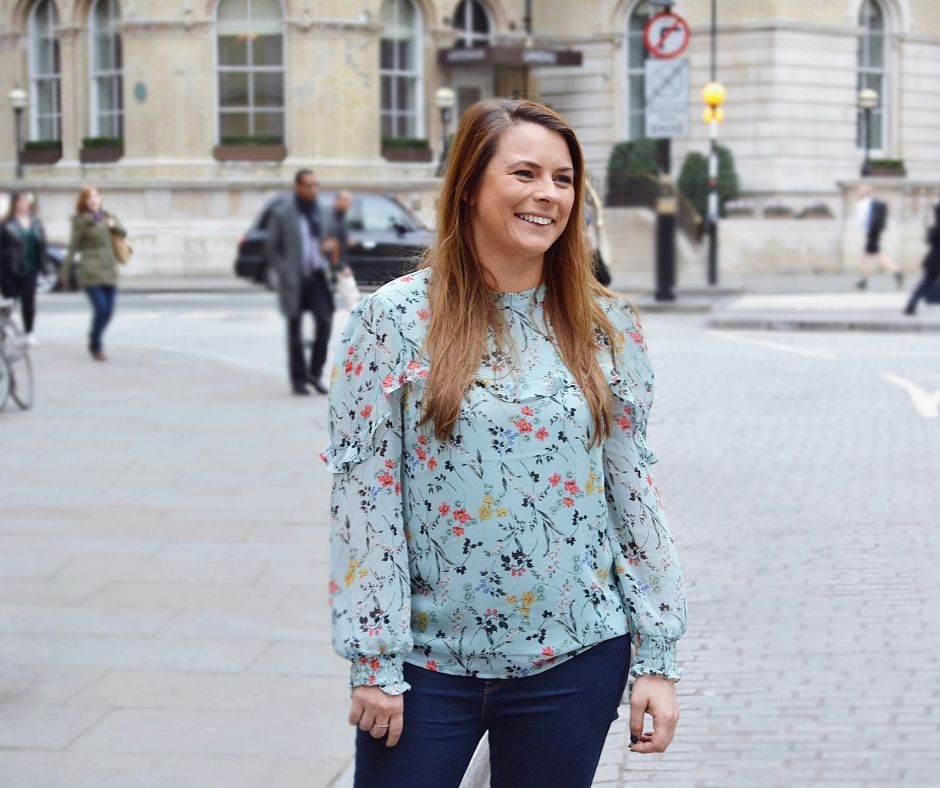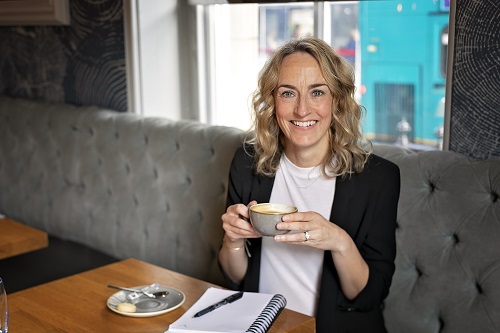
Read our inspiring interview with the paralympian, Liz Johnson. Liz won gold, silver & bronze swimming medals in three Paralympic games.
Since retiring she has set up an employment consultancy – The Ability People – which aims to close the disability employment gap.
Tell Us About A Typical Day At Work
There is no such thing as a typical day!
What Two Things Do You Do To Build Your Confidence?
In order to build my confidence, I prepare through planning and practice. I think this is something that I have transferred from my athlete life. I used to get my confidence to perform from knowing that I’d done everything I could to be as ready as possible and my approach to working life now is no different.
How Do You Balance Work And Life And Make Time For Yourself?
To be honest I’d probably say I don’t have a great work-life balance in the traditional sense, although I don’t see it as a bad thing.
One of the reasons I’ve been successful in my career – both as an athlete and as co-founder of The Ability People – is that I’ve had a great deal of freedom and control over my work.
None of my jobs have felt like ‘work’ in the traditional sense which makes massive difference to my personal well-being and motivation; but also means it’s hard to strike a work/life balance as such.
A lack of regular structure has definitely been the most difficult thing to adapt to because with technology, and a team that works completely flexible hours then there is always an opportunity to be responding but I’m learning when it is OK to “switch off”.
When I am really looking to get away from it all, I find travelling is the best way to do it. It’s easy to forget about work or training when you’re in a beautiful new country a million miles from your home and your usual routine.
What’s Your Definition Of Success And How Has This Changed Over The Years?
Success used to be winning gold at the Paralympics. Now I’ve done that, in a business sense, success will be when TAP (The Ability People) doesn’t need to exist because businesses are being truly inclusive and don’t need someone like me to come in and give them the tools to be properly accessible.
I also hope that society’s mindset will have changed to view disability as a straightforward difference rather than a “handicap” or setback. This is essential if disabled and able-bodied people are to be considered on a level playing field at work, but in all other areas of life too. For me, ultimately success equals happiness.
Why Do You Think Disability Inclusion Is Often Forgotten In Conversations On Gender Equality And Racial Diversity?
One of the reasons I think it’s left out is due to the lack of understanding around what disability is, what it represents, and how people should look or act if they’ve got a disability.
The common assumption is that any non-disabled person is more capable than a disabled person in every situation. It’s almost as though being disabled is on a totally different plane to being an ethnic minority, LGBTQ+ or a woman, as disabled people are literally seen as being intellectually inferior.
This bias starts at school. Things are starting to improve now, but just a few years ago disabled children were sent to ‘special schools’ or sat at the back of classrooms, clearly singled out and given menial tasks to perform. Could you imagine a racially segregated classroom in 2020?
This has led to the assumption that people with disabilities are less intelligent than able-bodied people, which now means when a disabled person achieves anything, it is seen as inspirational and awe-inspiring. People don’t understand that disabled people just do things differently. Nobody is astonished when a woman, a trans-person or a black person is incredibly intelligent or excels in work or sport. If that person is disabled it’s a different story.
People also struggle to understand disability as it’s a broad category. Popular movements – from body-positivity to feminism – often represent differences that are slightly easier to define and identify with.
Disabled people don’t fit into neat categories as there are countless disabilities which can vary in severity, and visibility, which lead to wildly different physical and cognitive abilities. There’s no one size fits all, so it’s harder for people to know what to say or how to act. People are scared to say the wrong thing and address the elephant in the room.
One thing people definitely shouldn’t ask is “what’s wrong with you?”. I’ve had this a few times and there’s nothing wrong with me, I’m just different. I’m incredibly happy and healthy. It’s the destructive societal ideal of what’s ‘normal’ and that difference should be pitied which isolates disabled people
I’m trying to put disability on the media agenda so people start to understand that yes, disability comes in many different forms, but that isn’t a reason to be scared of it. Disabled people are people like any other with skills, desires, opinions and talents, and lots of them are being left out. I’m looking to normalise difference
Why Did You Decide To Take On This Fight?
I was inspired to launch TAP when I was watching the news one night and saw a feature on the disability employment gap. The first staggering thing was that the gap is enormous.
There are 13.9 million people in the UK with disabilities but barely half are employed, compared to over 80% of non-disabled people. Shockingly this gap hasn’t improved in over a decade.
As a disabled person I knew the bias that exists in society towards those who look and act differently. But seeing the impact of this was chilling. I was determined to do something about this bias and the disability employment gap.
Around this time I also met my current business partner, Steve Carter, who has been a recruiter for over thirty years. He had similar interests and concerns to me, albeit for slightly different reasons. Steve was tired of being presented with the same talent pool, and instinctively knew that there was untapped talent out there.
After some discussion we decided to set up The Ability People, with a goal to improve disability awareness within businesses and the wider recruitment industry, and make workplaces truly accessible to disabled people.
How Did You Cope With Such A Big Career Change, And What Is Your Advice For Other Women Looking To Change Career?
I think any big career change is easy to cope with so long as you’re doing something you’re passionate about. I’m aware that this is often a rare privilege. But often when people do decide to embark on a big career change it’s because they weren’t happy in what they were doing and want to try something else.
It was an adjustment going from the pool to the boardroom, switching up policy in some of the biggest companies in the UK. But just like swimming, I rose to the challenge thanks to resilience, self-belief and a strong drive to succeed no matter what, which came from the transferable commonalities.
I’m so passionate about what I do with TAP that failing just isn’t an option. What we’re doing is changing disabled people’s lives for the better and I’ll never stop fighting for this access and equality.
My advice to anybody looking to change careers is to ensure that what you’re going on to do is something you really love and believe in. You can cope with uncertainty, instability and even a big pay cut if you feel fulfilled by what you’re doing every day.
What’s Next?
It is my hope that following this pandemic, the world has a better understanding and is more empathetic to the unnecessary struggles of everyday life and the impact that this can have on an individual’s potential to optimise energies and maximise performance at work and at home.
TAP will be available to guide, facilitate and help organisations (and individuals) move forward with the lessons learned and experiences of this challenging situation.








